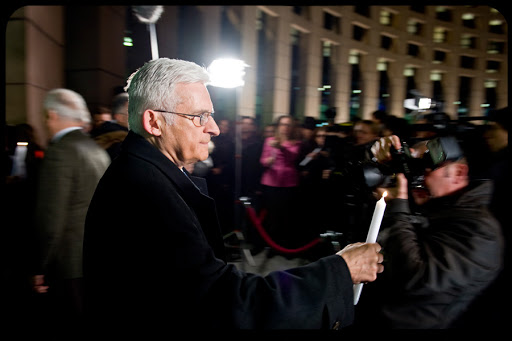Two U.S. congress members and a coalition of Christian leaders are requesting that the Obama Administration appoint a special envoy on Middle East religious minorities.
In a “Pledge of Solidarity and Call to Action on Behalf of Christians and Other Small Religious Communities in Egypt, Iraq and Syria,” the coalition is calling for a “high caliber envoy of stature who has the ear of the president” to pay special attention to the plight of Christians in those three countries, where reports of violence against churches have increased significantly in recent years.
Rep. Frank Wolf (R-VA) and Rep. Anna G. Eshoo (D-CA), co-chairpersons of the bipartisan Religious Minorities in the Middle East Caucus, hosted presented the pledge at a May 7 press conference in Washington. Wolf, author of the 1998 International Religious Freedom Act, plans to enter the new document into the Congressional Record next week. He and Eshoo, who is of Armenian and Assyrian heritage, last year introduced legislation for a special envoy for Middle East religious minorities, but while the bill passed easily in the House of Representatives, it has languished in the Senate.
“I regularly meet with beleaguered Christians from this part of the world,” Wolf said at the press conference. “Their stories are eerily similar: believers kidnapped for ransom; churches–some full of worshippers–attacked; clergy targeted for killing. In the face of this violence, Christians are leaving in droves."
Over 20 special envoy posts exist to protect a range of groups and interests, but none is dedicated to the plight of Middle East religious minorities, the pledge said.
The pledge also calls for a review of foreign aid and refugee and reconstruction assistance.
Foreign aid reviews should consider, among other criteria, a government’s national identity card policy, as the inclusion of one’s religious identity is often used to deny rights, the pledge says.
A request for comment from the White House has not yet been answered.
Wolf said at the press conference that Christians in Egypt, Syria and Iraq, whose communities trace their roots to the early years of the Church, now “are facing an existential crisis which threatens their very survival.”
George Marlin, chairman of the board of Aid to the Church in Need, who also spoke at the press conference, seconded that. “Events of recent days, weeks, months and even years in Syria, Iraq and Egypt have revealed an increasingly blatant and violent campaign of Christian religious targeting and persecution that has provoked an unprecedented exodus of faithful from the region,” said Marlin, whose international Catholic charity supports the persecuted and suffering Church around the world.
“This is not a matter of pitting Christianity against Islam,” said Marlin, “but to put a halt to the abuses perpetrated by extremist Islamic factions bent on the destruction of Christianity—groups which inflict suffering on the general population as well.”
The pledge notes that Egypt, Syria and Iraq are the three Middle Eastern countries with the largest Christian communities remaining. All have “seen scores of churches deliberately destroyed, many clergy and laypeople targeted for death, kidnapping, intimidation and forcible conversion, and hundreds of thousands of believers driven from their countries.”
So far, the pledge has over 200 signatories, including several Catholic bishops, among them Washington Cardinal Donald Wuerl and Philadelphia Archbishop Charles Chaput.
John Burgeris a freelance writer covering mostly topics in Catholicism. He has worked as a reporter and editor at the National Catholic Register and Catholic New York, the newspaper of the Archdiocese of New York, and his articles have appeared in Human Life Review, Legatus and Family Foundations, as well as online at Fathers for Good and Catholic World Report.

